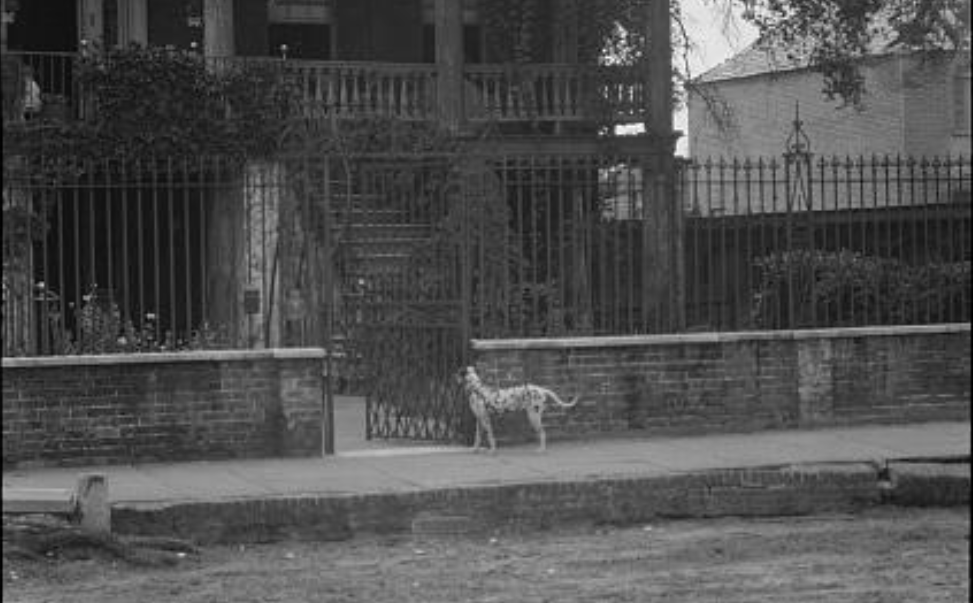With so many options for outdoor activities from beaches to dog parks and canine-friendly restaurants, Charleston is a dog lover’s paradise. In this blog, we’ll provide an overview of the best pet stores and places to spend time with your four-legged friend, introduce some of South Carolina’s most popular breeds historically and today, and provide an overview of the best places to live with a canine-companion.
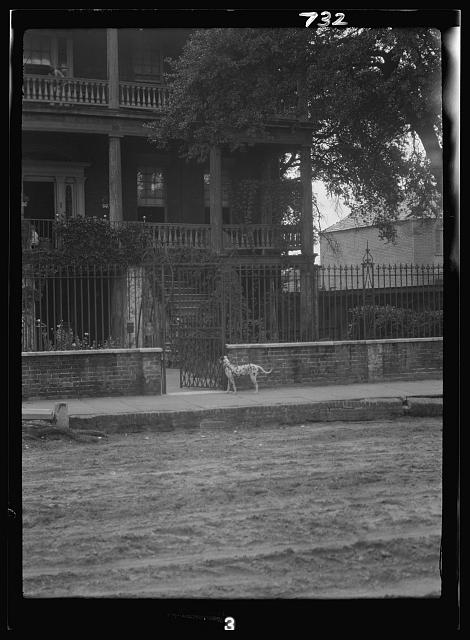
Canine History and Popular Breeds
South Carolinians have always been partial for their dogs, which were used for farming and hunting and to provide companionship, all traditions that continue here today. Dogs were butcher’s companions in old Charleston, cleaning up scraps of meat, and they protected Lowcountry livestock including sheep, cows, and chickens from natural predators on farms and plantations. They worked as sniffing hounds for the police and even mail carriers alongside postmen.
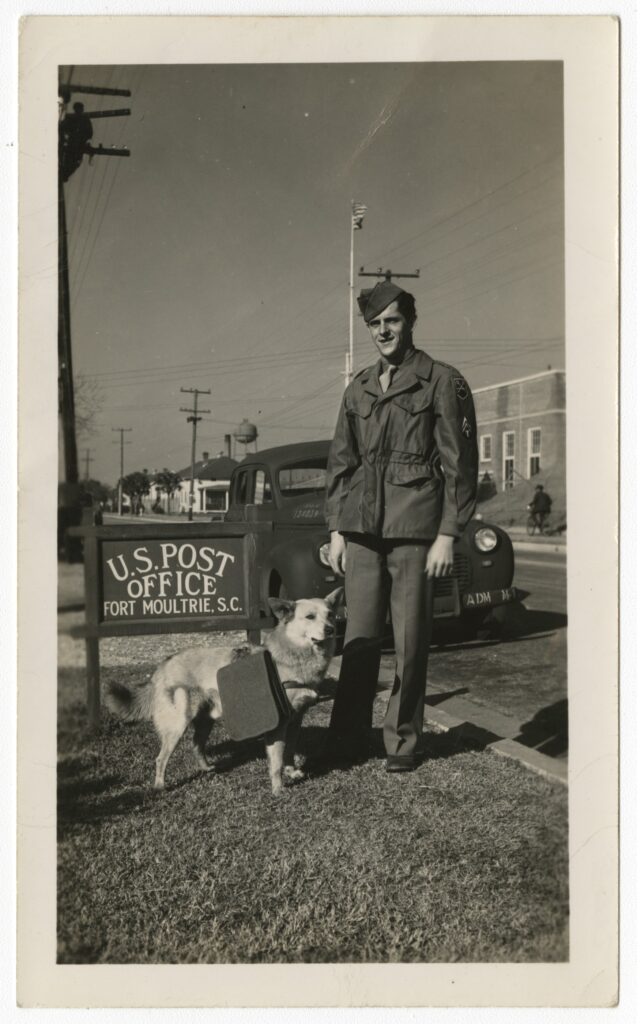
Probably the most common job for South Carolina dogs beside companionship- both in the past and today- was their role in hunting. The Lowcountry teems with wildlife and dogs acted as retrievers to bring back fowl such as quail and ducks on the hunt, or to scent and track deer and wild boars. Foxhounds accompanied plantation elite on their expeditions.
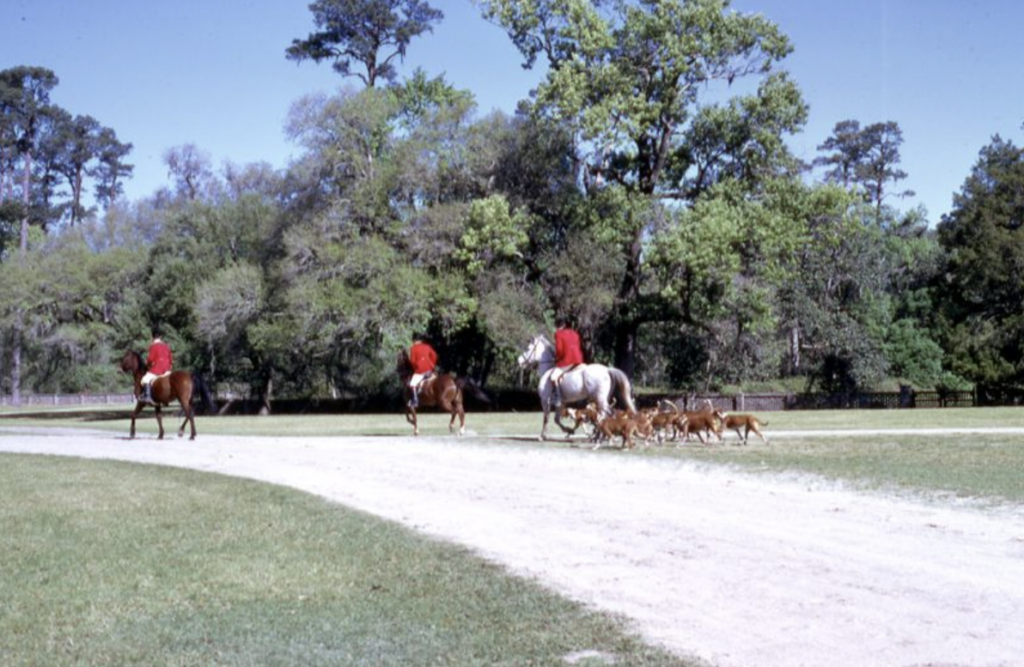
The state dog is the charming Boykin Spaniel, which remains a popular breed for its friendly nature, lovely chocolatey coat, and aptitude for hunting and watersports. Boykins have been bred since before the 1920s and breed expert Mike Creel describes them as an “amiable, small, dark brown retriever [who] is a superb hunter and loving family pet”, well suited for hunting waterfowl and always amenable to boat trips. Creel explains, “The precursor of the breed was reportedly a stray spaniel-type dog that befriended Spartanburg banker Alexander L. White around 1905. After the spunky dog showed an aptitude for retrieving, White sent the dog, called “Dumpy,” to his friend and hunting partner Whit Boykin. In Boykin’s hands this little stray developed into a superb turkey dog and waterfowl retriever. The popularity of the breed grew steadily, and the Boykin’s ability in the field and amiable nature brought the dog praise in all forms.”
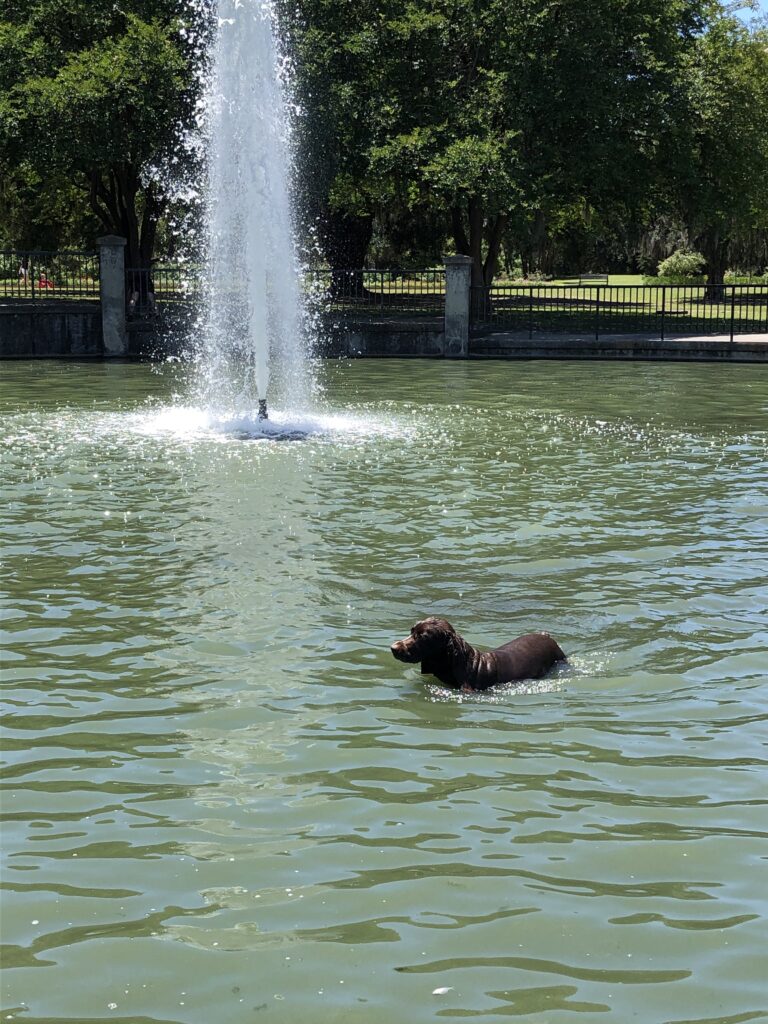
Yellow, black, and chocolate labs are popular for the same reasons as Boykins. Labradoodles and Cavalier King Charles Spaniels have gained favor in the last decade or so, along with pitbulls, which today are some of the most common dogs throughout the state. They are also the most common breed to be found in local shelters, sadly, so rescues always encourage Charlestonians to adopt instead of shop when possible.
Carolina Dogs and Mountain Curs are two other heritage breeds that have long been popular but were only recognized as breeds by the American Kennel Club in 1996 and 1998, respectively. Cur dogs known as “treeing hounds” and are bred to track prey. They weigh roughly 70 pounds and make great companions for outdoorsmen, and are high energy but also enjoy being in the house with their humans. The American Kennel Club notes that this intelligent dog is very local, and was a “crucial part of the cultures of early pioneers, settlers, and homesteaders.”
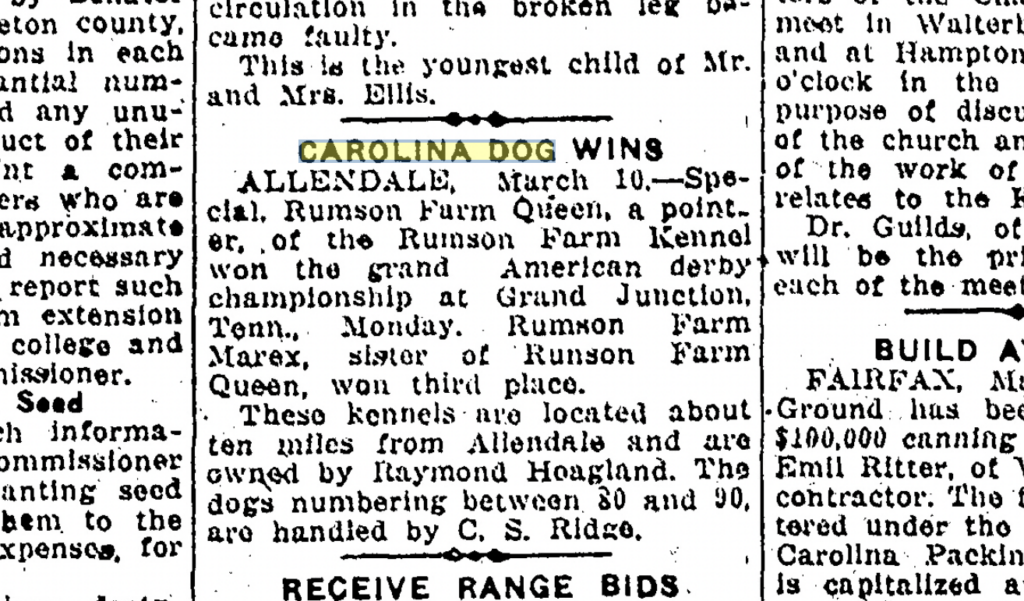
The AKC describes Carolina Dogs as “generally shy and suspicious in nature, but once a dog accepts a human into its pack, those behaviors disappear toward that human. A sighthound of medium build, they have the general appearance of a jackal or wolf.” They are descended from the canines that “accompanied the Paleo-Indians who traveled from Asia to North America over the Bering land bridge. Today, they can still be found living wild near the Georgia-South Carolina border.” They look a bit like dingoes, with their pointed ears, narrow snout, and curling tail. They are loyal companions and great guard dogs.
Dog Friendly Restaurants
Almost every restaurant in the tri-county area with outdoor seating (which is most of them given the balmy weather) allow dogs on the patio. Bring Fido lists 156 dog-friendly restaurants in the Charleston area (click here for a full list: https://www.bringfido.com/restaurant/city/charleston_sc_us/). Even though the outdoor spaces might be smaller downtown, there are plenty of options with sidewalk seating or courtyards, including Taco Boy, Santi’s, East Bay Bier Garden, Kudu Coffee, and Poogan’s Porch; we’d expect no less from the Queen Street staple, which is named after a little dog who used to live there.
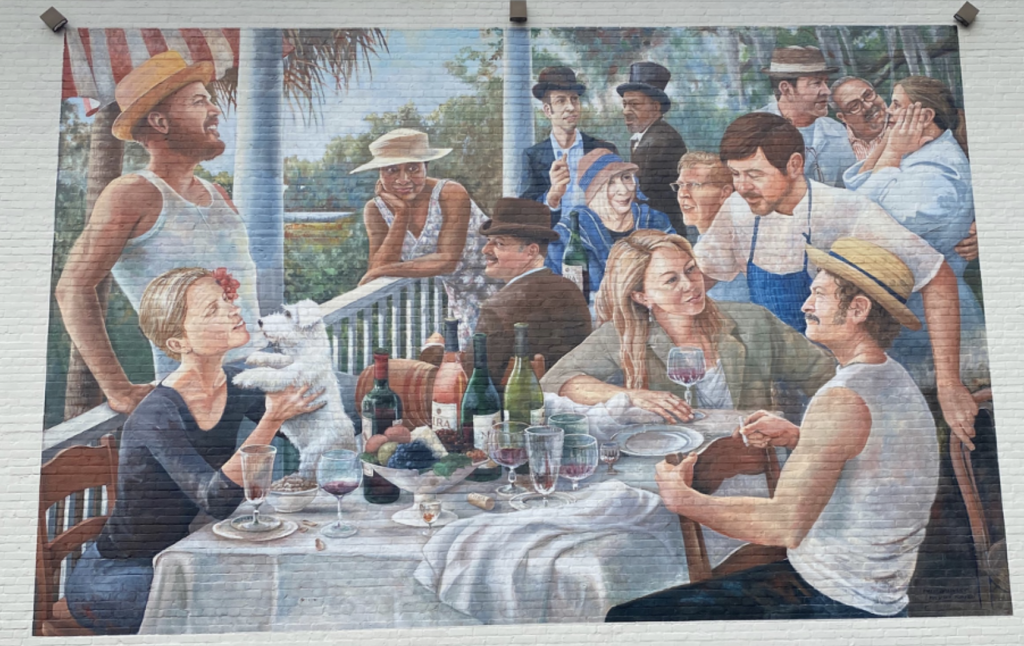
Beaches and Parks
Most beaches are dog-friendly, but some have leash rules and restricted hours to make sure roaming dogs don’t disturb other beachgoers or nesting sea turtles. Folly Beach welcomes dogs from October 1st to April 30th any time of day, and before 10 am and after 6 pm from May 1st to September 30th. Folly’s main drag, Center Street, has several dog friendly bars and restaurants for after your fun in the sun.
Dogs are allowed on leashes in all city and county parks in Charleston, as well as neighboring Dorchester and Berkeley Counties. Charlestowne Landing State park, which has miles of beautiful wooded trails, and historic Magnolia and Drayton Hall plantations on the Ashley River, also allow leashed pets on the grounds. Note that city parks are free, but there is a small fee for some of the county parks and other historic sites.
A non-exhaustive list of nearby off-leash dog parks include:
- Hampton Park Dog Run (downtown)
- Bridgewater Dog Park (West Ashley)
- East Bay Dog Park (behind Hazel Parker Playground, downtown)
- Wannamaker (North Charleston)
- Bridgeview (North Charleston)
- County Dog Park at Bee’s Ferry (West Ashley)
- James Island County Park
James Island County Park might be one of the most fun: they have a Splash Paw spray fountain, separate play areas for large and small dogs, shade cloths and tree canopies to keep the dogs col, seating for the humans, and a dog washing area before you put your tuckered canine back in the car.
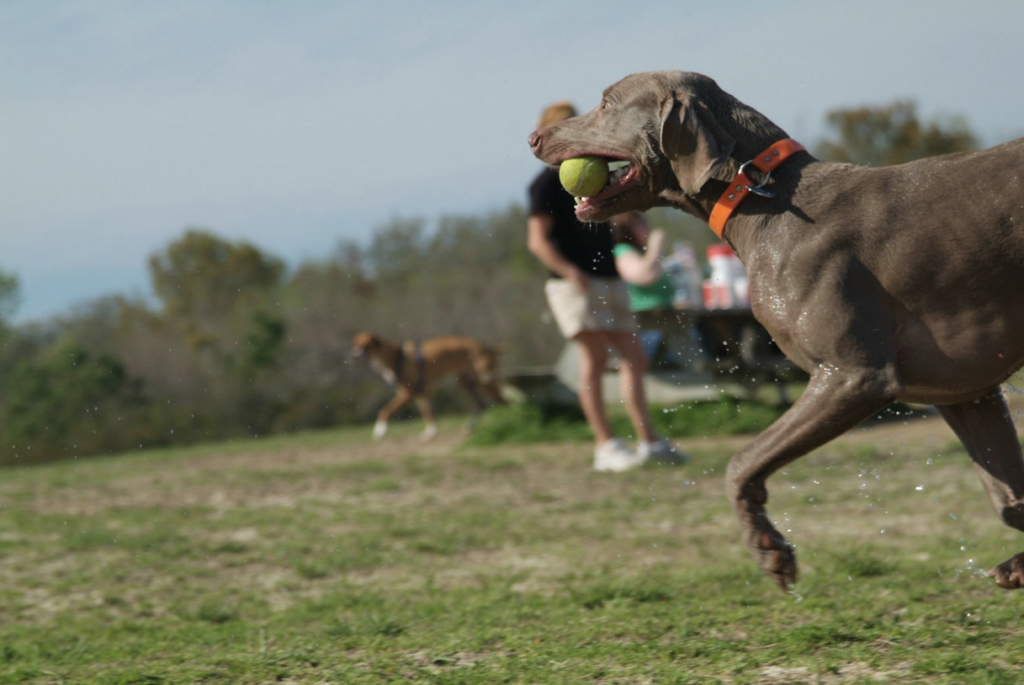
Click here for a complete list and hours of operation for Charleston County Parks https://www.ccprc.com/1513/Dog-Parksand City of Charleston parks: https://www.charleston-sc.gov/2797/City-Dog-Parks. The city website specifies which spaces are fenced versus non-fenced off leash.
Great day trips with your dog include the Lighthouse Nature Trail at Hunting Island State Park (about an hour and a half away), Colonial Fort Dorchester Park in Summerville, the Spanish Mount Trail at Edisto Island State Park (about an hour drive), and the Awendaw Passage at Francis Marion National Forest in McClellanville (about 45 minutes from Charleston).
Pet Shops and Boutiques
Beside larger chains like Petsmart and Petco, the Lowcountry boasts many boutique pet stores, spas, and treat shops. Downtown, there is Faux Paws near the Market and Woofgang on King Street. In Mount Pleasant, shop at Doolittlees, Hollywood Feed (a great local chain), Seaside Pet Spa, Woofgang’s new bakery and groomer, and Hairy Winston. West Ashley/James Island have a Doolittles, Wild Pet, Crew La La, and a Hollywood Feed.
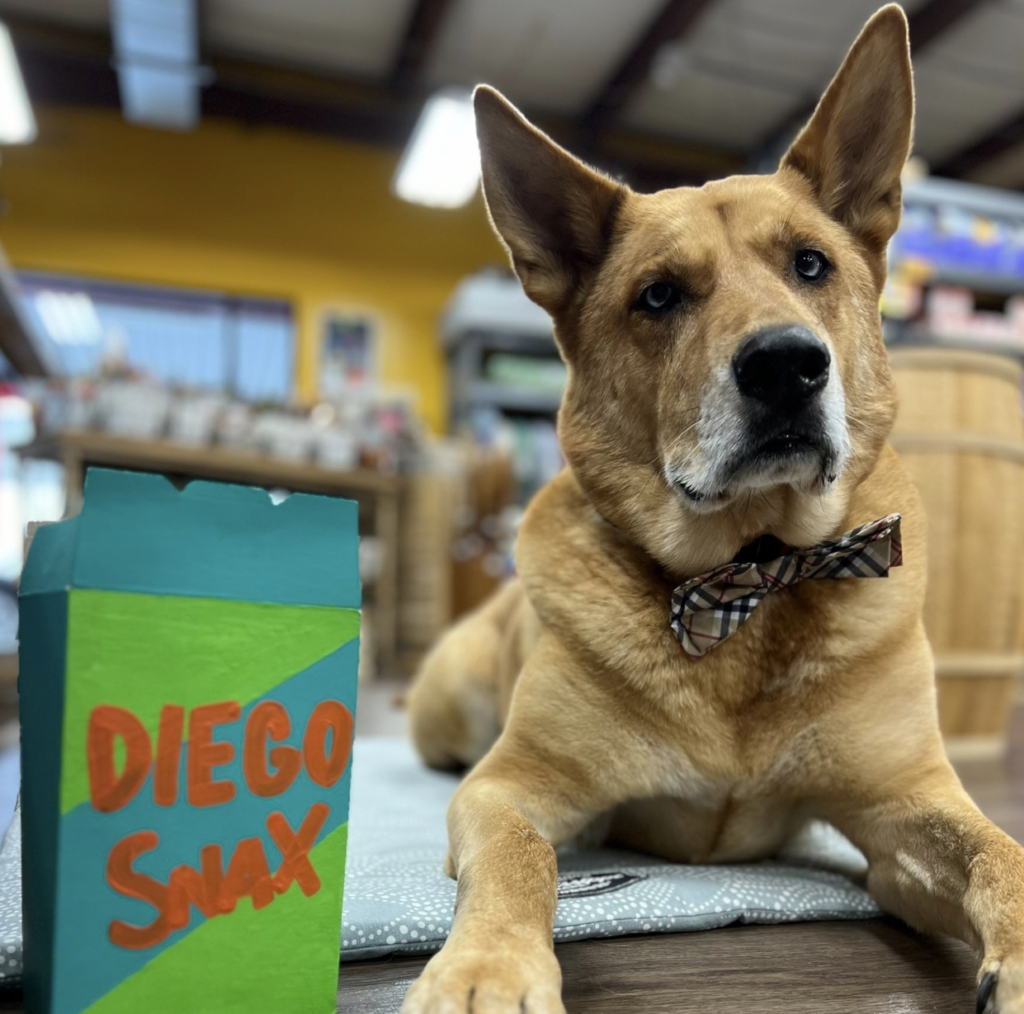
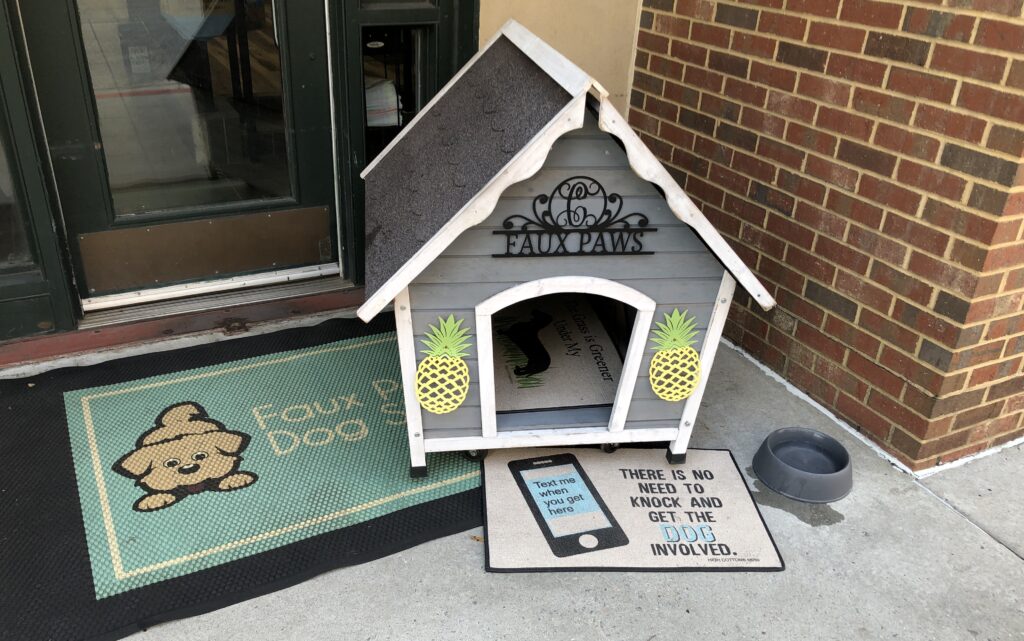
Dog Lifestyle tips
Because of the Lowcountry’s hot climate, it can be a breeding ground for fleas and ticks, so its essential to keep your pet on preventative treatments and check them over after a trek in the woods in deer tick season. Similarly, heartworm is rampant so don’t skip a monthly preventative pill. Lastly, be mindful that the pavement and sand can get quite toasty in the summer months so watch out for their paws, and bring a collapsible bowl and water with you on longer walks.
Lowcountry Dog magazine is the best source for local dog owners. They were founded in 2005 and are now fully digital, with all issues available free of charge: https://www.lowcountrydog.com. Their mission is “number one Charleston area resource for dog owners regarding regional dog-centric and dog-welcoming events, health & wellness information, dog training, trends, and local news. We also strive to be a mouthpiece to the public for various Lowcountry-based pet non-profits, and we promote pet adoption and other responsible pet care practices.” They offer rescue spotlights, merchandise, a marketplace tab with leads for shops, products, petsitters, and other dog-friendly businesses, and an events tab. They also off a low-price annual membership to the Lowcountry Dog Society, which comes with great perks: swag, coupons and discounts, print version of the magazine, and event tickets.
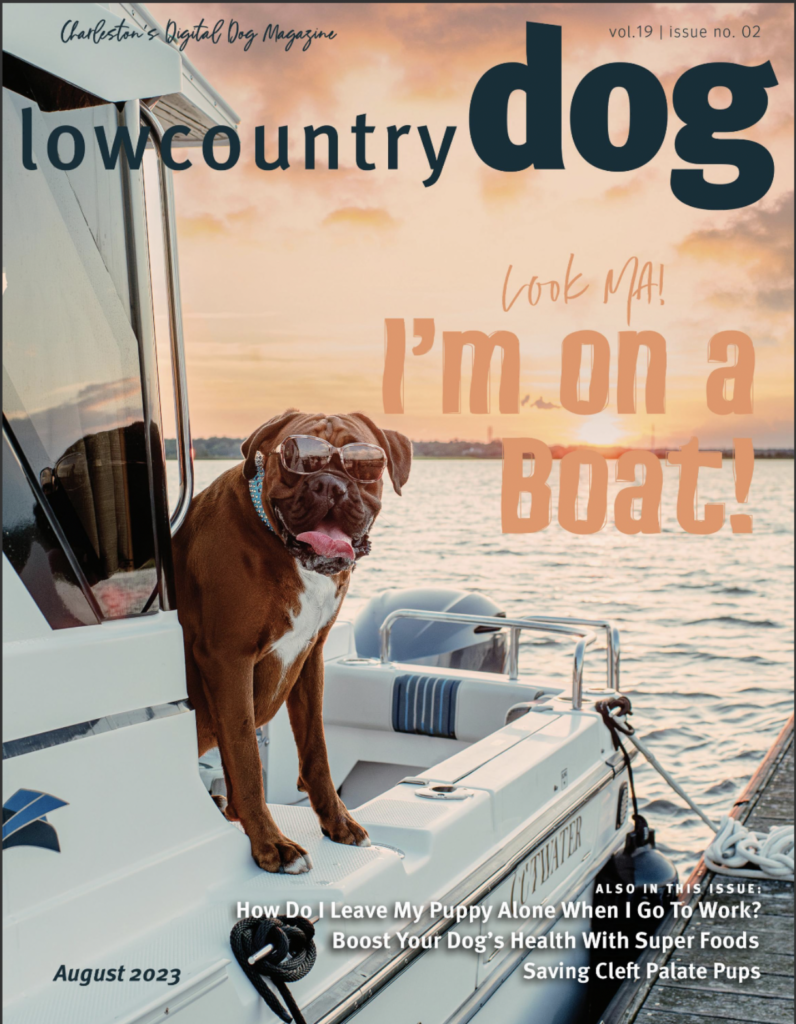
There are several breed-specific rescue organizations in the state, and some wonderful all-dog rescues including Charleston Animal Society, Berkeley County Animal Center, Dorchester County Paws, and Lowcountry Pet Helpers, which regularly offer discounted adoption fees. They are always looking for volunteers, and another way to show support is making a donation or visiting their shops, such as the ReTail store on Savannah Highway. Luckily, South Carolina does not have breed specific legislation, so residents are free to choose their favorite breed.
Pet Friendly Neighborhoods
No community that is overtly un-pet friendly comes to mind in Charleston. Even many apartments are pet friendly, especially newer high end complexes geared towards lifestyle tenants. The upscale Guild, for example, on Charleston’s East Side adjacent to upper King Street, note a pet-friendly community design, with a shared greenspace next store that it slate to become part of Charleston’s larger Lowline park in the future. https://livetheguild.com
Nexton community in Summerville is a large new planned community with easy access to I-26. Nexton’s developer, the Beach Company, has recently partnered with GoDog (https://godoghq.com/location/summerville/ to create the greater Charleston area’s first pet-based lifestyle community; “This strategic partnership symbolizes the mutual goal of crafting a dynamic and pet-centric epicenter within Nexton, the visionary mixed-use community in Summerville, S.C. where it will offer a comprehensive pet hospitality concept with a range of pet service offerings, including dog boarding, daycare, bathing services and a membership-based dog park and bar.” Nexton is a multi-phase build out with lots home styles and price points, so contact Charleston Empire Properties today to seek out the perfect fit for your and your four legged best friend.
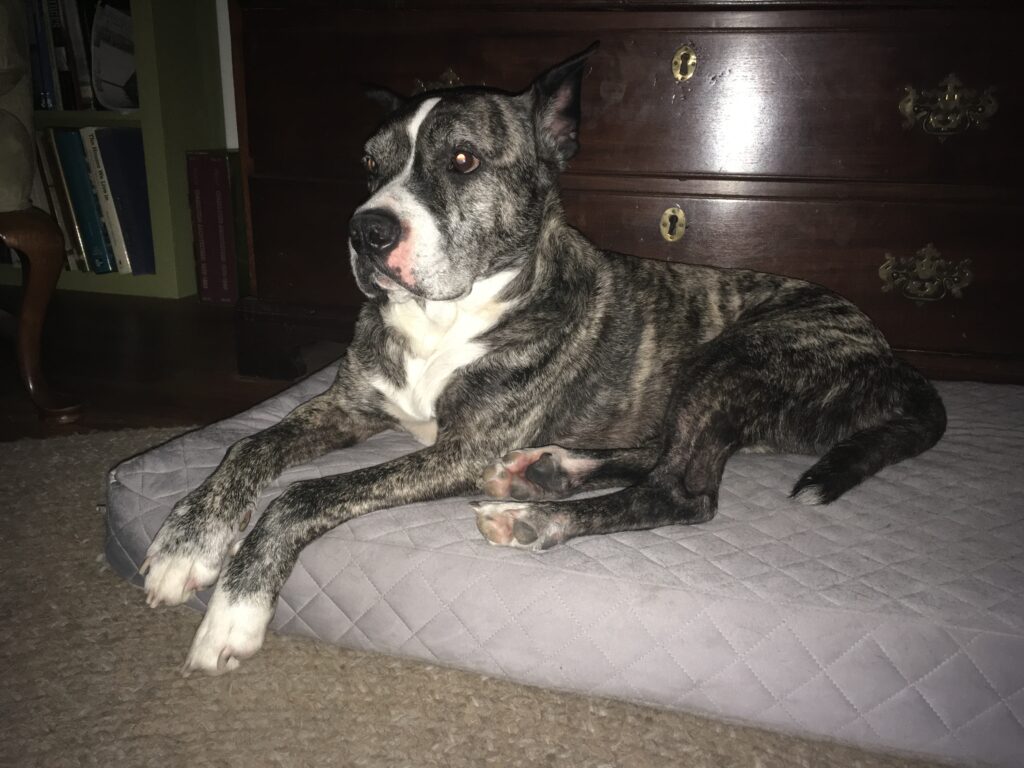
Sources:
National Park Service, Open Park Network image database
Library of Congress, historic photo collections
Mike Creel. “Boykin Spaniel.” South Carolina Encyclopedia.
http://doggonedestinations.com/dog-friendly-things-to-do-in-charleston/
https://lowcountrywalkingtours.com/charleston-stories/dog-friendly-charleston/
Creel, Mike, and Lynn Kelley. The Boykin Spaniel: South Carolina’s Dog. Columbia, S.C.: Summerhouse, 1997.
https://www.akc.org/dog-breeds/carolina-dog/
https://www.akc.org/dog-breeds/mountain-cur/
Lucy Spector. Charleston Dogs. Frederick C. Beil, 2006
Mike Creel and Lynn Kelley. The Boykin Spaniel: south Carolina’s Dog. Columbia: University of South Carolina Press, 2009.
Melissa Watson. Best Dog Hikes South Carolina. Rowman and Littlefield, 2018.

